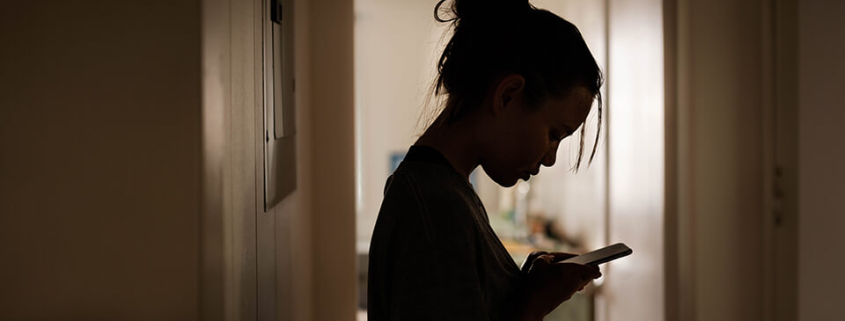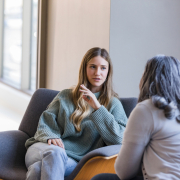Screen time, social media and mental health
Love it or loathe it, our world is becoming ever more pervasive with social media, screens and interactive technology. These advances provide access to new ways of connecting with people across the world. Endless information is at our fingertips, as well as a perpetual source of entertainment.
Because of these perks, it has led many of us to embracing our phones, tablets or devices as constant companions — never being too far from a scroll, clip, news, game or some other social buzz. While we can appreciate these mod cons, the importance of being mindful of their impact on our wellbeing is becoming increasingly clear.
Research continues to highlight both the obvious and subtle ways that social media and screen time can impact our mental health. The effects of digital content can have significant impacts on the way we view the world, others and ourselves. It can also shape the beliefs and thoughts we have, how we feel and the way we behave.
Young people and adolescents can be especially susceptible to the negative impacts of social media, particularly in relation to effects on self-esteem, increased social comparison or the experiences of bullying. Studies continue to highlight how social media usage can contribute to a sense of loneliness, negative self-comparison, anxiety, and unrealistic standards of beauty and achievement.
The dependence on the devices themselves can also have a detrimental impact on our wellbeing through interfering with our attention capacity, increasing social isolation, reducing in-person communication and causing eye strain. The habitual reliance or deferral to our phones can also inhibit our engagement in other important activities such as exercise, interacting with our environment, taking in our surroundings or engaging in creative or reflective activities. Furthermore, the exposure to the blue light of many devices impacts our bodies sleep/wake cycle which can inhibit our capacity to sleep, resulting in fatigue, low mood and difficulty concentrating.
So how do we master our devices and not let them become our master?
Building awareness
The first step is building awareness of how and when we are engaging with our devices. Taking time to check in with ourselves before we reach for our phone can help us understand the role it is playing in our life.
It could be as simple as asking:
- Am I looking for something to distract me, occupy me, or make me feel different?
- Can I come back to that text, call, or scroll later?
Creating some separation between ourselves and our devices is important in ensuring that we are choosing to engage with the device for the right reasons.
Setting boundaries
Other strategies include setting boundaries around what we access and when. For example, not looking at your phone during or after a certain time of day, can help to ensure that we can disconnect from the 24/7 cycle of online activity.
Other ways to regulate the effects of social media include turning off notifications on your phone from social media and other applications, putting your phone on ‘do not disturb’ settings at certain times, or having ‘no phone zones’ in your home or workplace.
Creating achievable goals
If switching off or reducing your engagement in social media feels a little challenging, starting with small goals can help. For example, setting time limits or finding other activities to replace online time may help to support these gradual changes.
If you feel like you may struggle to stick to reductions in usage, it may be worth installing usage monitoring applications which can assist in reporting your usage and automatically implement blocks when your selected usage threshold is reached.
Building resilience
In addition to usage reduction, it can also be of benefit to engage in strategies targeted towards building resilience to the effects of social media.
Activities such as meditation or mindfulness practices, exercise, gratitude practices, maintaining good in-person relationships, self-care and paying attention to our thoughts and feelings all help to strengthen our self-regulation and may reduce our vulnerability to the potential effects of social media and screens.
“Everything in moderation” said one ancient Greek philosopher. In this modern, constantly evolving digital era, such wisdom is as relevant as ever. Our unprecedented connectivity to the big wide world, 24 hours a day via social media and screens brings a plethora of opportunity. However, ensuring that we moderate our use of these tools is essential in taking care of our mental health.
The information provided in this document is general in nature and is intended to be used for information purposes only. While we have tried to ensure the accuracy of the information published, no guarantee can be given that the information is free from error or omission or that it is accurate, current or complete.
The information published is not, and should not be relied on as, health or treatment advice. The diagnosis and treatment of any mental illness requires the attention of a physician or other properly qualified mental health professional. If you are seeking diagnosis or treatment of any other mental illness, you should consult a physician or mental health professional. You should not delay in seeking, or disregard, professional health advice because of something you have read in this document.









